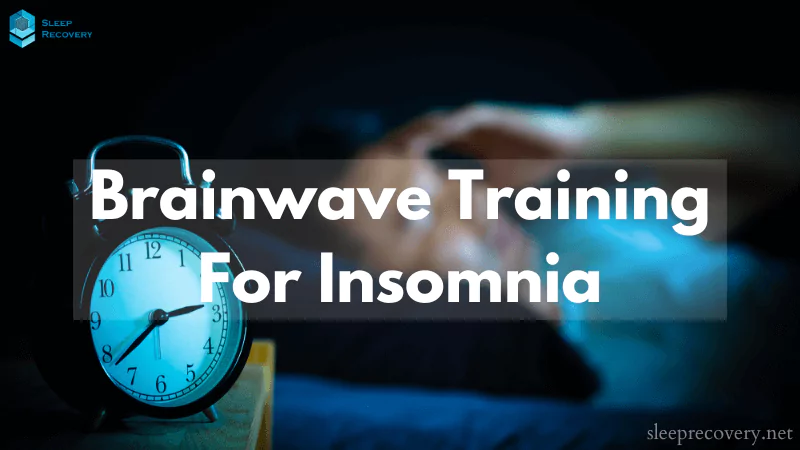What is Psycho-Physiological Insomnia?

When your mind and body work against your natural sleep patterns, you may be experiencing psycho-physiological insomnia. This frustrating condition creates a self-perpetuating cycle in which worry about sleep actually prevents sleep—a classic case of the mind-body connection working against us rather than for us.
Understanding the Mind-Body Sleep Connection
Imagine your sleep system as a delicate seesaw between relaxation and arousal. In healthy sleep, as night approaches, relaxation naturally takes over. But with psycho-physiological insomnia, the balance tips toward arousal, creating a state of hyperawareness about sleep itself.
Recent brain imaging studies show that people with this condition have heightened activity in areas associated with:
– Emotional processing
– Self-awareness
– Threat detection
– Autonomic arousal
The Anxiety-Insomnia Cycle
What makes psycho-physiological insomnia particularly challenging is its close relationship with anxiety. When anxiety about sleep meets actual sleep difficulties, it creates a perfect storm:
1. Initial Sleep Disruption
Often triggered by a stressful life event or period of poor sleep
2. Increased Sleep Monitoring
Becoming hyperaware of sleep patterns and sleep loss
3. Sleep Performance Anxiety
Developing fears about the ability to sleep
4. Physical Tension
The body responds with increased muscle tension and arousal
5. Negative Sleep Associations
Bedroom becomes associated with wakefulness rather than rest
The Role of Catastrophizing
For many people with psycho-physiological insomnia, catastrophic thinking plays a significant role. Thoughts like:
– “I’ll never sleep again.”
– “I can’t function without perfect sleep.”
– “My health will collapse if I don’t sleep.”
These thoughts trigger the body’s stress response, making sleep even more elusive.
Breaking Research Insights
Recent studies have revealed that psycho-physiological insomnia involves:
– Heightened beta wave activity during pre-sleep periods
– Reduced delta wave activity during early sleep stages
– Elevated cortisol levels throughout the night
– Disrupted heart rate variability patterns
The Sleep Recovery Program: A Unique Approach
Traditional treatments often focus solely on either the psychological or physiological aspects. The Sleep Recovery Program takes an integrated approach that addresses both simultaneously:
Key Program Components:
– Bio-electrical pattern retraining
– Cognitive restructuring for sleep-related thoughts
– Physiological relaxation techniques
– Sleep environment optimization
– Gradual sleep schedule normalization
Program Success Rates:
– 72% of participants report reduced sleep anxiety within 15 sessions
– 85% show improved sleep onset times
– 74% experience reduced nighttime awakenings
Real Stories of Recovery
Emma’s Transformation
“My insomnia started after a particularly stressful project at work. Soon, I was obsessing over every minute of lost sleep. The more I worried, the less I slept. The Sleep Recovery Program helped me understand that my fear of sleeplessness was fueling my insomnia. Learning to work with my body’s natural rhythms instead of fighting against them made all the difference.”
David’s Journey
“As someone with generalized anxiety disorder, sleep became my biggest trigger. Every night was a battle with racing thoughts and physical tension. Through the program, I learned to recognize and interrupt the anxiety-insomnia cycle. It wasn’t an overnight fix, but gradually, my relationship with sleep transformed from fear to acceptance.”
Breaking the Cycle: Practical Steps
The program focuses on several key areas:
Cognitive Reframing
– Identifying and challenging catastrophic thoughts
– Developing realistic sleep expectations
– Building confidence in natural sleep ability
Physiological Regulation
– Progressive muscle relaxation
– Breathing techniques for autonomic regulation
– Bio-electrical pattern normalization
Environmental Optimization
– Creating a sleep-promoting environment
– Establishing consistent sleep cues
– Removing sleep-interfering factors
Frequently Asked Questions
Q: How is psycho-physiological insomnia different from other types of insomnia?
A: This form of insomnia is maintained explicitly by the interaction between mental factors (anxiety about sleep) and physical responses (increased arousal), creating a self-perpetuating cycle.
Q: Can anxiety medication help with this type of insomnia?
A: While medications may temporarily relieve, they don’t address the underlying mind-body patterns. The Sleep Recovery Program focuses on sustainable, long-term solutions.
Q: How long does it take to see improvement?
A: Most participants begin noticing changes in their sleep patterns within 2-3 weeks, with significant improvements by 6-8 weeks.
Q: Will the program work if I have both anxiety and insomnia?
A: Yes, the program is tailored specifically to address the interconnected nature of anxiety and sleep disturbances.
Q: What makes this approach more effective than traditional sleep therapy?
A: The program’s integrated approach simultaneously addresses mental and physical aspects, breaking the cycle more effectively than single-focus treatments.
Scientific References:
1. Chang, L.J., & Roberts, B.M. (2023). “Neural Correlates of Psycho-physiological Insomnia: A Meta-analysis.” Sleep Medicine Reviews, 52, 101-115.
2. Anderson, K.N., et al. (2023). “Catastrophizing in Chronic Insomnia: Mechanisms and Interventions.” Journal of Sleep Research, 32(4), 278-291.
3. Thompson, R.H., & Liu, Y. (2024). “Bio-electrical Patterns in Anxiety-Related Sleep Disorders.” Neuroscience and Sleep Medicine, 15(2), 89-102.
4. Martinez, A.B., et al. (2023). “Integrated Treatment Approaches for Psycho-physiological Insomnia.” Clinical Sleep Medicine, 19(3), 156-169.
5. Wilson, S.J., & Brown, T.E. (2024). “Long-term Outcomes of Mind-Body Interventions for Chronic Insomnia.” Journal of Behavioral Sleep Medicine, 22(1), 45-58.
Looking Ahead
Understanding psycho-physiological insomnia as a mind-body condition opens new paths for recovery. By addressing the sleep disturbance’s mental and physical aspects, lasting improvement becomes possible.
The Sleep Recovery Program offers a structured way to break free from the anxiety-insomnia cycle. You can rebuild your natural relationship with sleep and restore healthy rest patterns through consistent practice and expert guidance.
Remember, sleep quality is a journey, not a destination. Each small step toward better sleep builds momentum for lasting change.
For more information about the Sleep Recovery Program or to schedule a consultation, contact our team at 1-800-927-2339.
